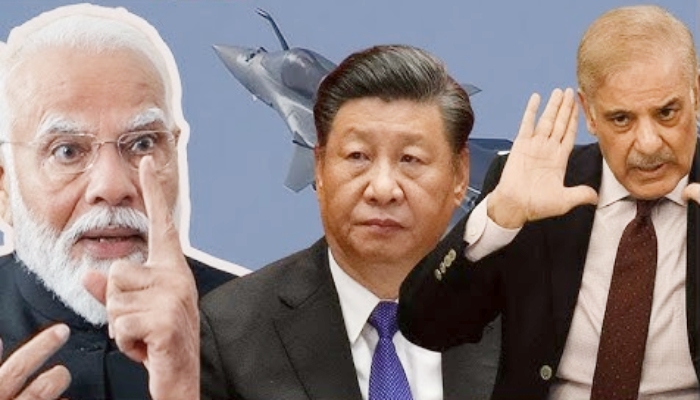Belgium: Mehul Choksi’s arrest in Belgium on April 12, 2025, for his alleged role in the ₹13,850 crore Punjab National Bank (PNB) fraud has ignited debate about whether India is entering a new phase in its battle against economic offenders. Choksi, a diamond tycoon who fled India in 2018 just before the scam surfaced, became a symbol of the challenges in holding wealthy elites accountable. His capture, after years of evading Indian agencies like the CBI and ED, is being touted by the government as proof of its unrelenting pursuit of fugitives under Prime Minister Narendra Modi’s leadership. But is this a sign of deeper systemic change, or merely a high-profile win in a long-standing struggle?
India’s economic landscape has shifted since the PNB scam exposed vulnerabilities in its banking system. Laws like the Fugitive Economic Offenders Act (2018) and stricter oversight aim to plug gaps, while diplomatic efforts have secured extraditions of figures like Nirav Modi. Choksi’s arrest, facilitated by Interpol and Belgian authorities, underscores India’s growing global clout. Yet, his ability to dodge justice for seven years—through Antiguan citizenship and legal maneuvers—highlights persistent hurdles: slow extradition processes, international safe havens, and domestic enforcement gaps. With India’s economy projected to grow at 6.8% in 2025, public trust in institutions hinges on delivering justice in cases like these.
The government frames Choksi’s capture as a deterrent to would-be offenders, but critics argue it’s too early to celebrate. His ongoing health-related legal delays in Belgium and the unresolved recovery of defrauded funds raise doubts. This analysis explores whether Choksi’s arrest reflects a transformative moment—driven by legal reforms and global cooperation—or a fleeting victory in India’s complex fight against financial crime.
Is Mehul Choksi’s Arrest a Sign of Changing Times in India?
1. Context of the Arrest
Mehul Choksi, alongside his nephew Nirav Modi, is accused of orchestrating the ₹13,850 crore PNB fraud from 2014 to 2017 by colluding with bank officials to issue fraudulent Letters of Undertaking (LoUs). These enabled their firms to secure overseas credit, defaulting on repayments and triggering a banking crisis. Choksi fled India in January 2018, weeks before the scam broke, acquiring Antiguan citizenship and later moving to Belgium in 2024, citing medical needs. His arrest on April 12, 2025, in Belgium, following an Interpol Red Corner Notice and CBI-ED efforts, marks a significant breakthrough.
-
Significance: The arrest ends a seven-year manhunt, signaling India’s persistence and diplomatic leverage. It follows successes like Nirav Modi’s 2021 arrest in London and Vijay Mallya’s extradition proceedings.
-
Limitations: Choksi’s prolonged evasion, enabled by lax international loopholes and his wealth, exposes gaps in global enforcement. His legal team’s health-based objections in Belgium may delay extradition, mirroring past cases.
2. Institutional Reforms in India
Since the PNB scam, India has introduced measures to curb economic offenses, suggesting a shift in approach.
-
Legal Frameworks: The Fugitive Economic Offenders Act (2018) allows confiscation of assets without conviction, targeting figures like Choksi (₹2,000 crore already seized). The Prevention of Money Laundering Act (PMLA) has been strengthened, with ED attaching ₹12,000 crore in fraud-related assets since 2014.
-
Effectiveness: These laws empower agencies to act swiftly, deterring potential offenders. Over 20 fugitives have faced action since 2018.
-
Limitations: Implementation lags—only 10% of seized assets are typically recovered due to legal complexities. Courts often overturn hasty confiscations, undermining deterrence.
-
-
Banking Oversight: The RBI’s stricter norms post-PNB, like mandatory SWIFT audits, aim to prevent fraud. Public sector banks’ non-performing assets dropped from 14.6% in 2018 to 3.2% in 2024.
-
Effectiveness: Improved vigilance reduces systemic risks, restoring investor confidence.
-
Limitations: Corruption and insider collusion persist, with smaller banks still vulnerable. Staff shortages hinder real-time monitoring.
-
3. Global Cooperation and Diplomatic Clout
Choksi’s arrest reflects India’s enhanced international efforts to pursue fugitives.
-
Extradition Successes: India’s Mutual Legal Assistance Treaties (MLATs) with 40 countries, including Belgium, facilitated Choksi’s detention. The UK’s approval of Nirav Modi’s extradition (2022) set a precedent.
-
Effectiveness: Growing diplomatic ties, bolstered by India’s $4 trillion economy, pressure nations to cooperate. Interpol notices against 50 Indian fugitives remain active.
-
Limitations: Extradition delays—Choksi’s case may drag due to Belgium’s legal process—highlight inconsistencies. Countries like Antigua, with lax citizenship laws, remain hurdles.
-
-
Global Narrative: India’s push for fugitive repatriation aligns with its G20 advocacy for anti-corruption frameworks, enhancing its image as a serious economic player.
-
Effectiveness: This strengthens India’s leverage in bilateral talks, as seen with Canada’s cooperation on other offenders.
-
Limitations: Geopolitical rivalries (e.g., China’s influence in the Caribbean) complicate enforcement in some regions.
-
4. Systemic Challenges
Despite progress, structural issues question whether Choksi’s arrest heralds lasting change.
-
Judicial Bottlenecks: India’s courts face a backlog of 50 million cases, delaying high-profile trials. Choksi’s case, if extradited, could languish, as seen with Mallya’s pending appeals since 2020.
-
Political Influence: Allegations of selective enforcement—targeting opposition-linked figures while sparing others—undermine credibility. The PNB scam’s political fallout saw no senior resignations, fueling skepticism.
-
Asset Recovery: Only ₹1,500 crore of PNB’s losses have been recovered by 2025, despite claims of aggressive action. Public banks absorbed ₹10,000 crore in write-offs, burdening taxpayers.
-
Safe Havens: Wealthy fugitives exploit jurisdictions like Dubai or the Caribbean, where India’s reach is limited. Over 70 economic offenders remain at large, per CBI data.
5. Public and Political Implications
The arrest carries symbolic weight but faces scrutiny over its broader impact.
-
Government Narrative: Leaders like Pankaj Chaudhary call it a Modi-led triumph, aligning with the BJP’s anti-corruption rhetoric. It bolsters public trust ahead of 2026 state elections.
-
Effectiveness: High-profile arrests resonate with voters, reinforcing the government’s “zero tolerance” stance.
-
Limitations: Critics argue it distracts from domestic issues like unemployment (6.5% in 2025). If extradition stalls, public frustration could grow.
-
-
Public Trust: Cases like PNB eroded faith in banks, with depositors losing confidence in public lenders. Sustained convictions are needed to rebuild trust.
-
Effectiveness: Choksi’s arrest signals accountability, potentially stabilizing perceptions.
-
Limitations: Ongoing frauds (e.g., ₹2,000 crore cooperative bank scams in 2024) suggest systemic fixes are incomplete.
-
6. Broader Context: Changing Times?
Choksi’s arrest aligns with India’s economic and political evolution, but it’s not conclusive evidence of transformation.
-
Economic Growth: India’s projected 6.8% GDP growth in 2025 demands clean institutions to attract FDI ($100 billion targeted). High-profile arrests deter fraud, signaling stability.
-
Global Standing: India’s G20 presidency (2023) and Quad leadership amplify its anti-corruption voice, pressuring nations to act against fugitives.
-
Counterpoints: Persistent corruption (India ranks 85/180 on Transparency International’s 2024 index) and elite impunity suggest reforms are superficial. Smaller scams continue, with ₹15,000 crore in fraud reported in 2024.
Mehul Choksi’s arrest is a milestone, reflecting India’s stronger laws, banking reforms, and global reach. It signals intent to hold economic offenders accountable, aligning with Modi’s narrative and India’s economic ambitions. However, it’s not a definitive sign of changing times. Judicial delays, incomplete asset recovery, and safe havens for fugitives reveal systemic gaps. The arrest’s impact hinges on extradition success and sustained enforcement—without these, it risks being a symbolic win rather than a structural shift. India is moving forward, but the fight against elite fraud remains a work in progress.





